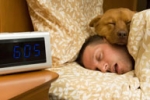Supplemental Oxygen - pros and cons?
- The Sheikh
- Posts: 165
- Joined: Sun Aug 19, 2012 12:22 pm
Supplemental Oxygen - pros and cons?
Let's assume for discussion that under doctor supervision, you add some O2 to your mask. Let's say you are not dropping to the critical 88% point, but having dips down to 90% each night, averaging 94%.
What if someone were an athlete or just wanted to fine tune their health to optimum and the doctor agreed to adding say, 1-2 liters, or whatever level he thought would bring you up to a very healthy (and normal) O2 level during sleep?
Reading through the threads I've seen someone suggest that if anything, "healthy" levels of O2 could help someone to live longer. In another post someone commented that nightime O2 use can make the lungs get "lazy" so that during the daytime we would have to breathe harder to compensate, which is not good.
I seem to remember Michael Jackson rumored to have slept in an O2 chamber....
Is there a small health advantage to sleeping with say, a 98% O2 all night vs: a 94% average?
Personally, I'm happy with my present O2 levels based on the CS-55H oximeter, but just curious. Down the road in later years I may need it when my lungs may not be as efficient.
Tom
What if someone were an athlete or just wanted to fine tune their health to optimum and the doctor agreed to adding say, 1-2 liters, or whatever level he thought would bring you up to a very healthy (and normal) O2 level during sleep?
Reading through the threads I've seen someone suggest that if anything, "healthy" levels of O2 could help someone to live longer. In another post someone commented that nightime O2 use can make the lungs get "lazy" so that during the daytime we would have to breathe harder to compensate, which is not good.
I seem to remember Michael Jackson rumored to have slept in an O2 chamber....
Is there a small health advantage to sleeping with say, a 98% O2 all night vs: a 94% average?
Personally, I'm happy with my present O2 levels based on the CS-55H oximeter, but just curious. Down the road in later years I may need it when my lungs may not be as efficient.
Tom
_________________
| Machine: ResMed AirCurve 10 ASV Machine with Heated Humidifier |
| Mask: Apex Wizard 310 Nasal CPAP Mask |
| Humidifier: S9™ Series H5i™ Heated Humidifier with Climate Control |
| Additional Comments: ResMed Adapt SV (ASV), PR AutoSV Advanced ASV, with SleepyHead, CMS-55H Oximeter and ZEO sleep monitor |
Re: Supplemental Oxygen - pros and cons?
Don't have a clue if adding O2 long term would impact down the road or not but giving your post a bump up in case someone happens to have some thoughts for you.
Only thing I think is that it would be an awful expensive experiment. Insurance is unlikely to pay for it unless drops are below 88% even with a doctor going along with the experiment.
Only thing I think is that it would be an awful expensive experiment. Insurance is unlikely to pay for it unless drops are below 88% even with a doctor going along with the experiment.
_________________
| Machine: AirCurve™ 10 VAuto BiLevel Machine with HumidAir™ Heated Humidifier |
| Additional Comments: Mask Bleep Eclipse https://bleepsleep.com/the-eclipse/ |
I may have to RISE but I refuse to SHINE.
Re: Supplemental Oxygen - pros and cons?
Hi Tom!The Sheikh wrote:Let's assume for discussion that under doctor supervision, you add some O2 to your mask. Let's say you are not dropping to the critical 88% point, but having dips down to 90% each night, averaging 94%.
What if someone were an athlete or just wanted to fine tune their health to optimum and the doctor agreed to adding say, 1-2 liters, or whatever level he thought would bring you up to a very healthy (and normal) O2 level during sleep?
Reading through the threads I've seen someone suggest that if anything, "healthy" levels of O2 could help someone to live longer. In another post someone commented that nightime O2 use can make the lungs get "lazy" so that during the daytime we would have to breathe harder to compensate, which is not good.
I seem to remember Michael Jackson rumored to have slept in an O2 chamber....
Is there a small health advantage to sleeping with say, a 98% O2 all night vs: a 94% average?
Personally, I'm happy with my present O2 levels based on the CS-55H oximeter, but just curious. Down the road in later years I may need it when my lungs may not be as efficient.
Tom
You are reminding me of a question I have out to several good doctors. Two of them have told me simply that they do not know but would ask another doctor that they thought might. In spite of several reminders, none have answered the simple question.
But, first some background. Tom Sietas holds the current underwater breath holding record of twenty two minutes and twenty two seconds. If I take any of my two pulse oximeters and, while at my desk, simply exhale gently and watch the oximeters as I pause breathing for thirty seconds - if I see a change in the SpO2 reading it will be no more than 2% during the 30 seconds or the 30 seconds following. Yet, if I look at the nighttime pulse oximeter recordings done with my recording pulse oximeter I see desaturations with a slope of about 5% in 15 seconds (thereabouts - I do not have it in front of me) - and - practically written into the definitian of an Hypopnea is "a desaturation of 4% - in ten seconds".
The simple question is why do those with Obstructive Sleep Apnea desaturate so quickly?! It makes no sense. It should not be - yet - it is!?!
If I am right about the reason (I do have a theroy) many of the cells of those with OSA are chronically starved of oxygen all night long and probably during the day as well. Most doctors become concerned if the O2 saturation falls below 88% - and I think that is probably a realistic number. If there is sufficient circulation and other necessary chemicals in the blood stream that is enough oxygen in the blood stream to supply the hungry cells. But if circulation is reduced and the necessary chemical enviornment lacks the elements needed to facilitate oxygen transport - some cells will starve.
At rest I see no basic need to add O2 to the stream assuming good lungs and all. I understand that adding O2 does tend to quite Central Apnea - I am not sure about the long term effects.
The more I have looked into this I have come to believe it is about breathing the right ammount of air - to supply O2 - to remove "enough" CO2 leaving what is necessary to faciltate circulation and oxygen transport. So my concern in adding O2 to the nighttime PAP stream is "how would it effect breathing chemoreflexes"?
To me it is about getting the circulation facilitated, and the cells fed. I think that makes for the best long term health.
FWIW - now while doing my "Optimal Breathing Training" with my pulse oximeter if I read an SpO2 of 95% while at my desk or 96% during moderate exercise I am close to the lowest heart rate. If I read - say - 98% I will probably have a stuffy nose, cold feet, and know that I need to slow down my breathing to get back to healthy levels where my nose is clear and my feet warm (you do feel the differance - every time). If I have at least one time of "interval training" (getting the old heart rate up to at least 80% of max for at least 10 minutes and keep the SpO2 reading between 96% and 97% I do note that I much less often find breathing stability events at night.
Have a great week!
Todzo
May any shills trolls sockpuppets or astroturfers at cpaptalk.com be like chaff before the wind!
- The Sheikh
- Posts: 165
- Joined: Sun Aug 19, 2012 12:22 pm
Re: Supplemental Oxygen - pros and cons?
You make some interesting points, Todzo.
I can see one problem when using more O2. Let's take an extreme case and say the supplemental O2 is high and the breathing rate is very low as a result. The lung ventilation may not be enough to expel the required CO2. The O2 in the mix may stagnate and not get to the proper extremities. BTW, is this what you suggested when saying the toes get cold, etc? I'm not sure I understand why a 98% O2 would be bad for circulation vs: a 94%.
I read where a few running athletes in the Oylmpics slept under oxygen tents. But get this.... the O2 level was reduced so that they would be starved for oxygen and build up their red blood cells to give them more endurance. Just the opposite of what we are talking about.
Considering the way nature operates and the fact that the human body has had millions of years to become optimized, I would guess that a healthy body is already designed to work best at the existing air mixture we see at sea level. Perhaps bringing a nighttime average up to 98% has side effects, such as lingering C02, lazy lungs or things we haven't mentioned.
I find very little information about maintaining a high level of O2 during sleep in a healthy person on the web. It is usually about cases with heart failure, severe O2 desat and the like.
Tom
I can see one problem when using more O2. Let's take an extreme case and say the supplemental O2 is high and the breathing rate is very low as a result. The lung ventilation may not be enough to expel the required CO2. The O2 in the mix may stagnate and not get to the proper extremities. BTW, is this what you suggested when saying the toes get cold, etc? I'm not sure I understand why a 98% O2 would be bad for circulation vs: a 94%.
I read where a few running athletes in the Oylmpics slept under oxygen tents. But get this.... the O2 level was reduced so that they would be starved for oxygen and build up their red blood cells to give them more endurance. Just the opposite of what we are talking about.
Considering the way nature operates and the fact that the human body has had millions of years to become optimized, I would guess that a healthy body is already designed to work best at the existing air mixture we see at sea level. Perhaps bringing a nighttime average up to 98% has side effects, such as lingering C02, lazy lungs or things we haven't mentioned.
I find very little information about maintaining a high level of O2 during sleep in a healthy person on the web. It is usually about cases with heart failure, severe O2 desat and the like.
Tom
_________________
| Machine: ResMed AirCurve 10 ASV Machine with Heated Humidifier |
| Mask: Apex Wizard 310 Nasal CPAP Mask |
| Humidifier: S9™ Series H5i™ Heated Humidifier with Climate Control |
| Additional Comments: ResMed Adapt SV (ASV), PR AutoSV Advanced ASV, with SleepyHead, CMS-55H Oximeter and ZEO sleep monitor |
- The Sheikh
- Posts: 165
- Joined: Sun Aug 19, 2012 12:22 pm
Re: Supplemental Oxygen - pros and cons?
Todzo,
About your question concerning why the faster O2 desat while sleeping vs: holding your breath during the day...
I'll bet it's cuz the heart is beating slower at night, thus less apt to keep up with O2 demand with an apnea event. Looking at an 8 hour heartbeat chart, I see my heart during sleep averages about 50 BPM, but about 2 hours into sleep it may dip down to as low as 35 BPM. I see 5% O2 drops that bottom at about 92%.
My resting heartbeat in the day is about 60 BPM, so our BPM drops about 40% at night at the lowest point.
Tom
About your question concerning why the faster O2 desat while sleeping vs: holding your breath during the day...
I'll bet it's cuz the heart is beating slower at night, thus less apt to keep up with O2 demand with an apnea event. Looking at an 8 hour heartbeat chart, I see my heart during sleep averages about 50 BPM, but about 2 hours into sleep it may dip down to as low as 35 BPM. I see 5% O2 drops that bottom at about 92%.
My resting heartbeat in the day is about 60 BPM, so our BPM drops about 40% at night at the lowest point.
Tom
_________________
| Machine: ResMed AirCurve 10 ASV Machine with Heated Humidifier |
| Mask: Apex Wizard 310 Nasal CPAP Mask |
| Humidifier: S9™ Series H5i™ Heated Humidifier with Climate Control |
| Additional Comments: ResMed Adapt SV (ASV), PR AutoSV Advanced ASV, with SleepyHead, CMS-55H Oximeter and ZEO sleep monitor |
Re: Supplemental Oxygen - pros and cons?
Hi Tom!The Sheikh wrote:Todzo,
About your question concerning why the faster O2 desat while sleeping vs: holding your breath during the day...
I'll bet it's cuz the heart is beating slower at night, thus less apt to keep up with O2 demand with an apnea event. Looking at an 8 hour heartbeat chart, I see my heart during sleep averages about 50 BPM, but about 2 hours into sleep it may dip down to as low as 35 BPM. I see 5% O2 drops that bottom at about 92%.
My resting heartbeat in the day is about 60 BPM, so our BPM drops about 40% at night at the lowest point.
Tom
Well Bradycardia is not my thing. My resting is more near 80 bpm going down near 70 bpm at night. For me, that is not the issue. If you really do dip to 35 bpm I think you should see heart doc stat!
May we find good health!
Todzo
May any shills trolls sockpuppets or astroturfers at cpaptalk.com be like chaff before the wind!
- The Sheikh
- Posts: 165
- Joined: Sun Aug 19, 2012 12:22 pm
Re: Supplemental Oxygen - pros and cons?
Actually, I just had a full heart nuclear stress test. They said I had the heart of an athlete. The heart picture showed a nice round donut for blood flow.
Many times a heart will beat slowly when healthy, but I agree that 35 BPM is low, even for a deep sleep dip.
Though, my blood pressure has always been very low, like 100/60 for many years. The docs said as long as I had no symptoms of fainting, etc, not to worry.
I guess we all have our crosses to bear...
T
Many times a heart will beat slowly when healthy, but I agree that 35 BPM is low, even for a deep sleep dip.
Though, my blood pressure has always been very low, like 100/60 for many years. The docs said as long as I had no symptoms of fainting, etc, not to worry.
I guess we all have our crosses to bear...
T
_________________
| Machine: ResMed AirCurve 10 ASV Machine with Heated Humidifier |
| Mask: Apex Wizard 310 Nasal CPAP Mask |
| Humidifier: S9™ Series H5i™ Heated Humidifier with Climate Control |
| Additional Comments: ResMed Adapt SV (ASV), PR AutoSV Advanced ASV, with SleepyHead, CMS-55H Oximeter and ZEO sleep monitor |
Re: Supplemental Oxygen - pros and cons?
I don't have a specific answer to your question about O2 for otherwise healthy people, but somewhat related. I asked my sleep doc if there had been any studies on the effects of PAP machine on athletic performance, being an athlete, and he said no. He said that he has seen endurance improve because of increased energy, but nothing on the cellular level, so to speak.
This is interesting because I actually tested to see how much effort it would take to get my O2 level to just drop below 95% and I was never able to do so according to the oximeter I have - a mid-level one in terms of price. I guess a caveat to all of this would be my O2 levels weren't bad during my diagnostic study - one of the lucky ones with no O2 issues but still an apnea diagnosis- so who knows how normal I am. But it is an interesting question. I would think one would have to REALLY struggle during waking hours to get your O2 levels to some of the low levels we see reported here - <70% in some cases. It definitely begs the question as to what exactly is causing the O2 issues because just holding your breath doesn't seem to have that type of impact.The simple question is why do those with Obstructive Sleep Apnea desaturate so quickly?! It makes no sense. It should not be - yet - it is!?!
Re: Supplemental Oxygen - pros and cons?
Hi themonk!themonk wrote:I don't have a specific answer to your question about O2 for otherwise healthy people, but somewhat related. I asked my sleep doc if there had been any studies on the effects of PAP machine on athletic performance, being an athlete, and he said no. He said that he has seen endurance improve because of increased energy, but nothing on the cellular level, so to speak.
This is interesting because I actually tested to see how much effort it would take to get my O2 level to just drop below 95% and I was never able to do so according to the oximeter I have - a mid-level one in terms of price. I guess a caveat to all of this would be my O2 levels weren't bad during my diagnostic study - one of the lucky ones with no O2 issues but still an apnea diagnosis- so who knows how normal I am. But it is an interesting question. I would think one would have to REALLY struggle during waking hours to get your O2 levels to some of the low levels we see reported here - <70% in some cases. It definitely begs the question as to what exactly is causing the O2 issues because just holding your breath doesn't seem to have that type of impact.The simple question is why do those with Obstructive Sleep Apnea desaturate so quickly?! It makes no sense. It should not be - yet - it is!?!
You might find it interesting to obtain the detailed version of your SpO2 data from your sleep study. I am kind of guessing but I think that OSA will always tend one toward desaturation upon a reduction of air flow espicially later in the night (after several events).
One thing I saw come through the news in the last year of particular interest was a study done where they used actual obstruction in the mice to observe actual OSA effects rather than the usual "reduce the O2 in the air suppy" that has become standard. The result - serious vascular damage notable in the brain within weeks!! I think it is not only the obstruction that causes a big problem but the cumulative effect of the bodies reaction to the obstuctions that makes for an effective "one two" punch for those of us with OSA. It helps me understand how perhaps 20 years of serious obstructions changed me from productive to disability. It also motivates me to help others with this evil disease find good help sooner so they do not experiance that.
To Productivity!
Todzo
May any shills trolls sockpuppets or astroturfers at cpaptalk.com be like chaff before the wind!
Re: Supplemental Oxygen - pros and cons?
My husband is now on supplemental 02, 2liters at night and doing well. He had 2 episodes this year where I found him unconscious in the morning. It was explained to me that although he doesn't "officially" have heart failure, his oxygen level does drop very low several times during the night during his apnea events. When he was monitored in the hospital with his cpap and 02 his level was nice and steady in the mid-high 90% range and he woke refreshed. There was some insurance question about prescribing 02 for home use but I refused to go home without it and our Dr solved the problem by wording the dx in such a way that pleased the ins co. One night I forgot to turn on the concentrator and he woke very "fuzzy" and pale looking for a good part of the day and needing 2 naps.The Sheikh wrote:Todzo,
About your question concerning why the faster O2 desat while sleeping vs: holding your breath during the day...
I'll bet it's cuz the heart is beating slower at night, thus less apt to keep up with O2 demand with an apnea event. Looking at an 8 hour heartbeat chart, I see my heart during sleep averages about 50 BPM, but about 2 hours into sleep it may dip down to as low as 35 BPM. I see 5% O2 drops that bottom at about 92%.
My resting heartbeat in the day is about 60 BPM, so our BPM drops about 40% at night at the lowest point.
Tom
_________________
| Mask: Mirage Quattro™ Full Face CPAP Mask with Headgear |
| Additional Comments: 14/8.4,PS=4, UMFF, 02@2L, |
"Do or Do Not-There Is No Try"-"Yoda"
"We are what we repeatedly do,so excellence
is not an act but a habit"-"Aristotle"
DEAR HUBBY BEGAN CPAP 9/2/08
"We are what we repeatedly do,so excellence
is not an act but a habit"-"Aristotle"
DEAR HUBBY BEGAN CPAP 9/2/08
Re: Supplemental Oxygen - pros and cons?
Hi DoriC!DoriC wrote:My husband is now on supplemental 02, 2liters at night and doing well. He had 2 episodes this year where I found him unconscious in the morning. It was explained to me that although he doesn't "officially" have heart failure, his oxygen level does drop very low several times during the night during his apnea events. When he was monitored in the hospital with his cpap and 02 his level was nice and steady in the mid-high 90% range and he woke refreshed. There was some insurance question about prescribing 02 for home use but I refused to go home without it and our Dr solved the problem by wording the dx in such a way that pleased the ins co. One night I forgot to turn on the concentrator and he woke very "fuzzy" and pale looking for a good part of the day and needing 2 naps.The Sheikh wrote:Todzo,
About your question concerning why the faster O2 desat while sleeping vs: holding your breath during the day...
I'll bet it's cuz the heart is beating slower at night, thus less apt to keep up with O2 demand with an apnea event. Looking at an 8 hour heartbeat chart, I see my heart during sleep averages about 50 BPM, but about 2 hours into sleep it may dip down to as low as 35 BPM. I see 5% O2 drops that bottom at about 92%.
My resting heartbeat in the day is about 60 BPM, so our BPM drops about 40% at night at the lowest point.
Tom
I very much regret hearing that your husband is going through that and the uncertanty for you must simply be torment. Ouch!!!
If I were you I would be looking for a doctor who understands this article:
http://www.ncbi.nlm.nih.gov/pmc/articles/PMC3014237/
Supplimentary O2 quiets the same kind of events as does extended rebreathing space. Other things I have found help:
Reduce stress
Stay away from violent media (TV, video games, etc...)
Less simple carbs near bed time
Half veggies in the diet
Kimchi (microbiome!)
Exercise - espically if he can work up to (with doctor approval) interval training.
Optimal Breathing training - something to get the breathing reflexes back in place - Yoga perhaps.
I hope you find good answers - in my prayers regardless,
Todzo
May any shills trolls sockpuppets or astroturfers at cpaptalk.com be like chaff before the wind!
Re: Supplemental Oxygen - pros and cons?
I'm not sure "exhale gently" is the right comparison. During the exhale phase, there is positive pressure from the lungs that may be holding the airway open, even if it collapses during inhale. The body's efforts to keep breathing could lead to several cycles of letting air out but failing to replace it with new air. I think the relevant starting condition is lungs completely empty.Todzo wrote:But, first some background. Tom Sietas holds the current underwater breath holding record of twenty two minutes and twenty two seconds. If I take any of my two pulse oximeters and, while at my desk, simply exhale gently and watch the oximeters as I pause breathing for thirty seconds - if I see a change in the SpO2 reading it will be no more than 2% during the 30 seconds or the 30 seconds following. Yet, if I look at the nighttime pulse oximeter recordings done with my recording pulse oximeter I see desaturations with a slope of about 5% in 15 seconds (thereabouts - I do not have it in front of me) - and - practically written into the definitian of an Hypopnea is "a desaturation of 4% - in ten seconds".
_________________
| Mask: Swift™ FX Nasal Pillow CPAP Mask with Headgear |
| Additional Comments: Software: SleepyHead. |
Re: Supplemental Oxygen - pros and cons?
Todzo, thanks for this interesting article. Although I don't quite understand all of it, somewhere in there might be an explanation of what's going on with Mike. I will save it for our Dr, although it may be over his head as well, we have an appt in Oct.and will check it out. He's good about conferring with colleagues on our behalf and we trust him.
_________________
| Mask: Mirage Quattro™ Full Face CPAP Mask with Headgear |
| Additional Comments: 14/8.4,PS=4, UMFF, 02@2L, |
"Do or Do Not-There Is No Try"-"Yoda"
"We are what we repeatedly do,so excellence
is not an act but a habit"-"Aristotle"
DEAR HUBBY BEGAN CPAP 9/2/08
"We are what we repeatedly do,so excellence
is not an act but a habit"-"Aristotle"
DEAR HUBBY BEGAN CPAP 9/2/08
- torontoCPAPguy
- Posts: 1015
- Joined: Mon Dec 28, 2009 11:27 am
- Location: Toronto Ontario/Buffalo NY
Re: Supplemental Oxygen - pros and cons?
I use an Everflo Q to infuse 4L/M into my S9 Auto's airline to the mask. My Contec 50E recording oximeter was showing my SpO2 dropped substantially below 90% (like down into the 70's) most nights. The result of this is that your autonomic nervous system arouses you in order to breath more deeply. The other result of this and much more dire is that your BP skyrockets while the body attempts to correct oxygen starvation any way it can.... leading to stroke risk.
However, you say your SpO2 is above 90% throughout the night based on a recorded report. I would suggest that you are well oxygenated and do not require supplemental O2 as far as apnea is concerned. My desats always line up with apnea events.
However, you say your SpO2 is above 90% throughout the night based on a recorded report. I would suggest that you are well oxygenated and do not require supplemental O2 as far as apnea is concerned. My desats always line up with apnea events.
_________________
| Mask: Mirage Quattro™ Full Face CPAP Mask with Headgear |
| Humidifier: S9™ Series H5i™ Heated Humidifier with Climate Control |
| Additional Comments: Respironics Everflo Q infusing O2 into APAP line to maintain 95% SaO2; MaxTec Maxflo2 Oxygen Analyzer; Contec CMS50E Recording Pulse Oxymeter |
Fall colours. One of God's gifts. Life is fragile and short, savour every moment no matter what your problems may be. These stunning fall colours from my first outing after surviving a month on life support due to H1N1.
Re: Supplemental Oxygen - pros and cons?
Extremely interesting article. I'd be a little afraid to try tinkering with this kind of stuff on my own, but it could have a big effect on those with central or complex apnea.
_________________
| Mask: Swift™ FX Nasal Pillow CPAP Mask with Headgear |
| Humidifier: S9™ Series H5i™ Heated Humidifier with Climate Control |
| Additional Comments: Also SleepyHead, PRS1 Auto, Respironics Auto M series, Legacy Auto, and Legacy Plus |
Please enter your equipment in your profile so we can help you.
Click here for information on the most common alternative to CPAP.
If it's midnight and a DME tells you it's dark outside, go and check for yourself.
Useful Links.
Click here for information on the most common alternative to CPAP.
If it's midnight and a DME tells you it's dark outside, go and check for yourself.
Useful Links.














